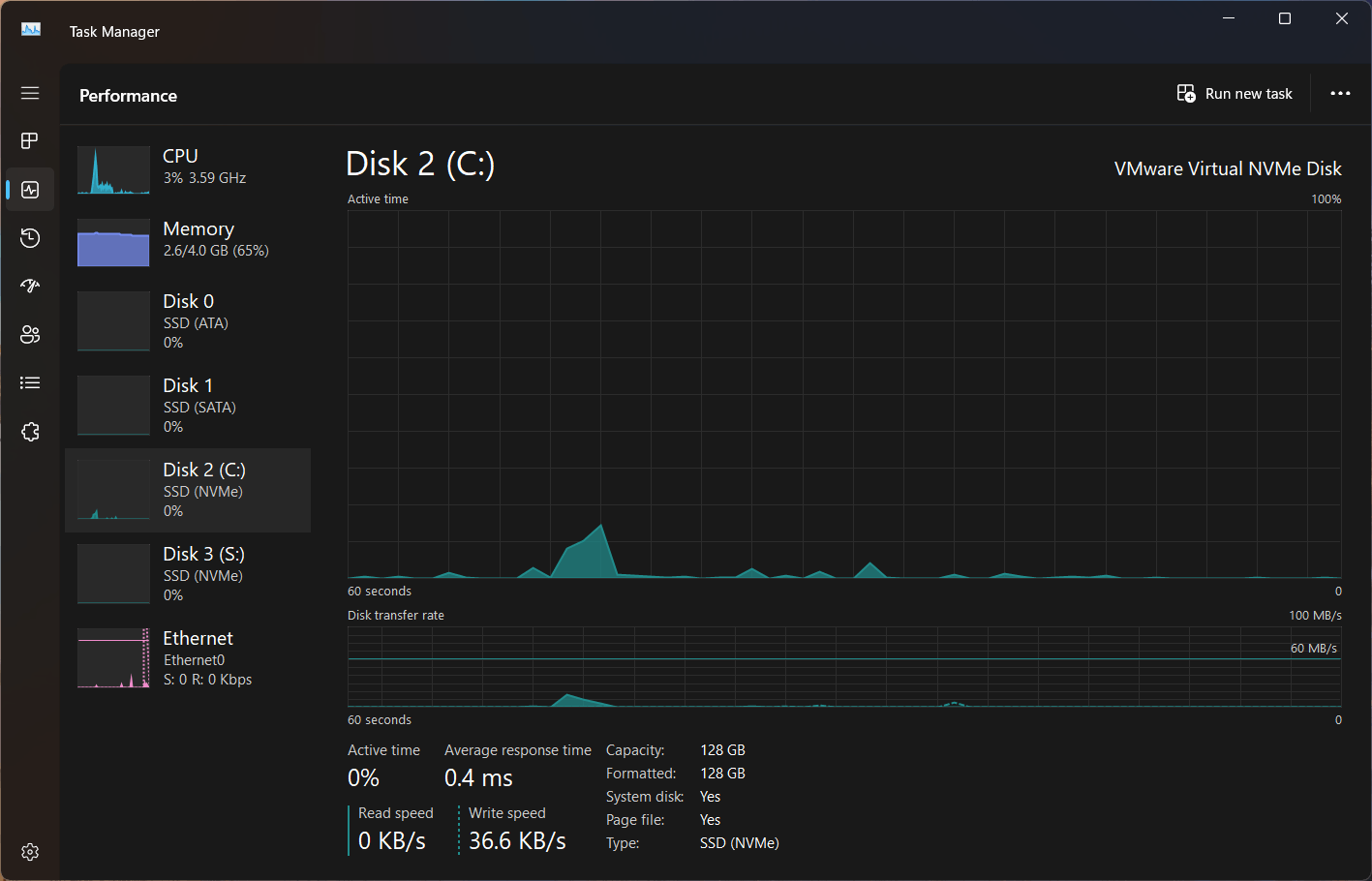Microsoft continues to improve the Task Manager despite it already received a major overhaul in Windows 11. The Performance tab of the app can now display the connection interface type for the SSD drives installed in your device. The drive type label adds NVMe/SATA and not just simply tells HDD or SSD. The feature is a work in progress that is hidden by default in the Beta Build 22635.4225. But you can force enable it manually.
Advertisеment
With the release of Windows 11 version 22H2, Microsoft has revamped the Task Manager app. While it retains the same core functionality as previous versions, its appearance has been completely overhauled. The traditional tab row has been replaced with a hamburger menu that can hide section names. In addition to the new layout, each page now features extra controls. For example, the Details tab includes buttons to terminate a process and launch a new app, while the Processes tab offers an option to enable Efficiency mode. Another great addition is the search bar to quickly find any process by name.
Just recently Microsoft has added the ability to show DDR speed in MT/s instead of MHz, and now a new feature is on the way to the app. In the near future, the Task Manager will be able to show the type of drive (HDD or SSD) along with the SSD connection interface, such as SATA or NVMe. This information will be displayed in the Performance page at the bottom of the page, in the Type: line.

By default the feature is hidden, but here's how to enable it.
Enable SSD Connection Type in Task Manager
- Download ViVeTool from GitHub and unpack it into the
c:\vivetoolfolder. - Open Terminal as Administrator (Win + X > select Terminal(Admin)).
- Enter the command below and hit Enter:
c:\vivetool\vivetool /enable /id:51978387 - Restart the computer to apply the change.
- Now open the Task Manager (Ctrl + Shift + Esc) and switch to the Performance tab. You will notice the new drive type value. If not, then Windows 11 may not be able to detect it for your hardware.
Thanks to @phantomofearth for everything.
Support us
Winaero greatly relies on your support. You can help the site keep bringing you interesting and useful content and software by using these options:
